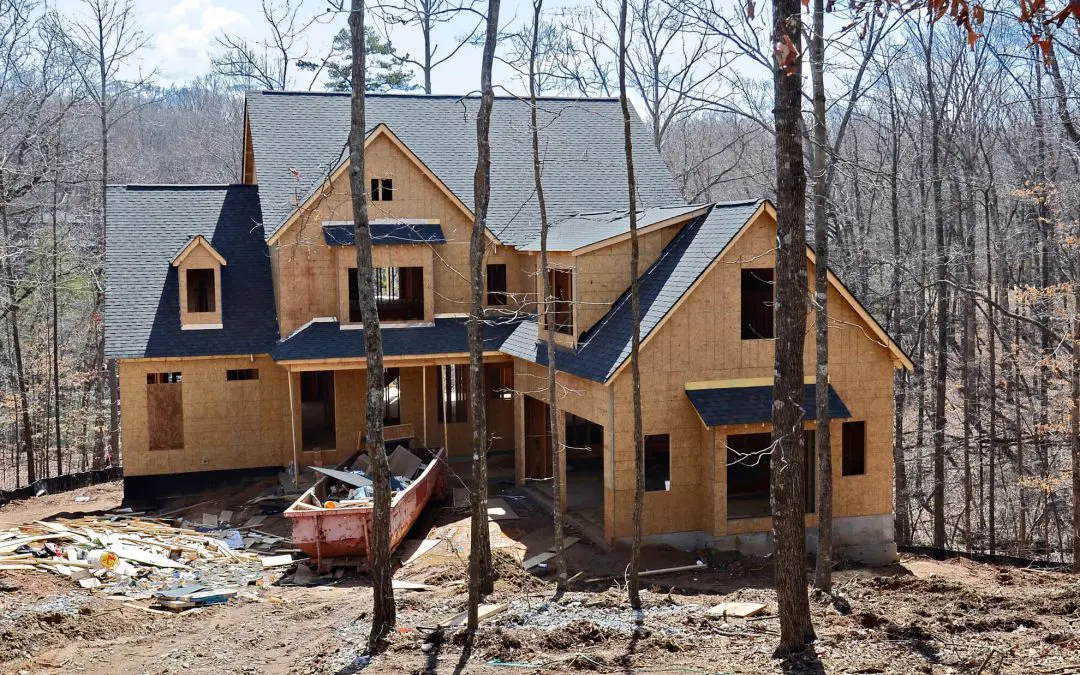Buying a new construction home is often seen as a dream come true for many people. The allure of pristine finishes, modern amenities, and the satisfaction of being the first occupants is enticing. However, even with meticulous planning and construction oversight, new homes can harbor defects that may not be immediately apparent to buyers. Understanding these common pitfalls is crucial for anyone considering investing in new construction. Here are some common new construction defects to watch for in your new home build.
Common New Construction Defects: Foundation Issues
One of the most critical elements of any home is its foundation. However, even in new constructions, foundation issues can arise. Poor soil preparation, improper compaction, or substandard materials can lead to settling, cracking, or structural instability. Signs of foundation issues may include uneven floors, cracks in walls or ceilings, or doors and windows that stick or don’t close properly.
Poor Drainage and Water Intrusion
Water damage can wreak havoc on a home, leading to mold growth, structural decay, and health hazards. In new constructions, inadequate drainage systems or improper grading around the property can result in water pooling near the foundation or infiltrating the basement or crawlspace. Buyers should be vigilant for signs of water intrusion, such as dampness or staining on walls, musty odors, or standing water in the yard after rainfall.
Faulty Plumbing
While new homes often boast of state-of-the-art plumbing systems, they are not immune to defects. Improper installation, low-quality materials, or design flaws can lead to leaks, pipe bursts, or water pressure issues. Buyers should inspect plumbing fixtures, look for signs of water damage under sinks and around toilets, and inquire about the materials used in the plumbing system.
HVAC Problems are Common New Construction Defects
Heating, ventilation, and air conditioning (HVAC) systems are essential for maintaining comfort and indoor air quality in a home. However, defects in new construction HVAC systems can result from inadequate sizing, faulty installation, or subpar equipment. Buyers should ensure that HVAC systems are correctly installed, have adequate capacity for the home’s size, and inquire about warranty coverage for repairs or replacements.
Electrical Deficiencies
Electrical defects pose significant safety hazards and can lead to fires or electrocution. In new constructions, common electrical issues may include overloaded circuits, improper wiring, or malfunctioning outlets and switches. Buyers should have the electrical system thoroughly inspected by a qualified professional and ensure that it complies with local building codes and safety standards.
Common New Construction Defects: Substandard Materials and Workmanship
In a rush to meet deadlines and cut costs, some builders may use substandard materials or employ inexperienced labor, leading to shoddy workmanship and construction defects. Common examples include poorly installed insulation, inferior-quality roofing materials, or inadequate sealing around doors and windows. Buyers should scrutinize the quality of materials and finishes used in the home and consider hiring an independent inspector to assess the construction quality.
While new construction homes offer the appeal of modern design and the promise of worry-free living, they are not immune to defects and construction flaws. Buyers should conduct thorough 3rd-party inspections, ask questions, and seek professional guidance to uncover potential issues before committing to a purchase. By being vigilant and proactive, homeowners can mitigate the risks associated with common construction defects and enjoy their new home with confidence and peace of mind.
Frequently Asked Questions About Building a New Home
What is the timeline for purchasing and moving into a newly constructed home?
The timeline can vary depending on factors such as the stage of construction, customization options, and any unforeseen delays. On average, purchasing and building a new home can take several months to a year or more from start to finish.
What are the potential pitfalls of buying a newly constructed home?
Some potential drawbacks include delays in construction, unexpected costs, and the possibility of discovering defects or issues after moving in. It’s essential to conduct thorough inspections and stay informed throughout the construction process.
What types of warranties should I expect with a newly constructed home?
Typically, newly constructed homes come with warranties covering structural defects, systems, and appliances. Review the warranty details provided by the builder and understand what is covered and for how long.
How do I choose the right builder for my new construction home?
Researching builders, reading reviews, visiting their past projects, and asking for references are crucial steps in finding a reputable builder. It’s also essential to ensure the builder is licensed and insured.
Secure Home Inspection Services offers home inspections to Western New York state. Contact us to request an appointment.

